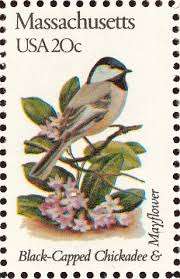Massachusetts Legislature Legalizes Daily Fantasy Sports
Major League Baseball General Managers burned the midnight oil over the weekend, working furiously to remake their rosters as Monday’s trade deadline loomed. They weren’t the only ones working into the night Sunday, though, as Massachusetts legislators passed H.4569, an economic development package that includes the legalization of daily fantasy sports (DFS).*
The bill passed almost unanimously in the Massachusetts General Court. It flew through the House by a 156 to 0 vote, while just one Senator gave it a thumbs-down, compared to 38 who voted for it. It is now up to Governor Charlie Baker to sign the bill into law, but there is no reason to expect him to do otherwise.
The portion of the package that pertains to fantasy sports is fairly simple, as it essentially just legalizes fantasy, rather than running through binders worth of regulations. In fact, it doesn’t regulate or tax fantasy gaming at all. Section 135 of the bill reads, in part:
… a person or entity that offers fantasy contests for a cash prize to members of the public may offer a fantasy contest to residents of the commonwealth pursuant to and in accordance with regulations promulgated by the attorney general; provided further, for the purposes of section 7 of chapter 4 of the General Laws a fantasy contest shall not be considered illegal gaming.
The regulations referenced were filed in March of this year by Attorney General Maura Healey. Healey’s office began investigating daily fantasy sports specifically in 2015 after the exposure and popularity of industry leaders DraftKings and FanDuel brought attention – much of it negative – to the DFS industry. Whereas her colleague Eric Schneiderman, New York’s Attorney General, went hard after DraftKings and FanDuel, treating them like a scourge on the public, Healey wanted to see if regulation would be a better path than prohibition.
When Healey issued her initial regulations in November 2015, she said in a press release:
These regulations are a first of their kind for the Daily Fantasy Sports industry, and they focus on protecting minors, ensuring truthful advertising, bringing more transparency to the industry, and leveling the playing field for all consumers. This is a first step, but an important step, as we continue to evaluate this new industry and make sure our laws keep up with these evolving technologies.
In a press conference, she also addressed the fairness, or lack thereof, of daily fantasy sports contests, saying, “I believe that most people would be surprised to know that in many contests, less than two percent of the people win 90 percent of the prizes. That’s because there’s a small set of professional players who have figured out advanced ways to win a majority of the games. There needs to be more disclosure about how these contests work and about who people are playing against.”
 Thus, part of Healey’s regulations require DFS sites to identify “highly experienced” players and make sure their status is known in the software to their competitors. In this case, a “highly experienced” player is one who has played more than 1,000 contests on a single site or has won $1,000 in one contest more than three times. The DFS sites must have separate contests from which these players are blocked.
Thus, part of Healey’s regulations require DFS sites to identify “highly experienced” players and make sure their status is known in the software to their competitors. In this case, a “highly experienced” player is one who has played more than 1,000 contests on a single site or has won $1,000 in one contest more than three times. The DFS sites must have separate contests from which these players are blocked.
One complaint many players have had about the DFS sites is that participants can often have as many entries into one contest as they would like and can afford. This gives deep-pocketed players a huge advantage. As such, the regulations state that no player may have more than 150 entries into a guaranteed prize pool contest or more than three percent of the total entries, whichever is smaller.
Among other regulations, scripts are also banned from daily fantasy contests in Massachusetts.
H.4569 defines a fantasy contest essentially like the UIGEA did back in 2006: the value of the prizes are known in advance, winning outcomes are based on the skill of the participates and are determined by the statistical results of players in real sporting events, and no contests are based on the results of a single game or single player’s performance (read: we’re not actually betting on games or making prop bets here).
Section 137 of the bill also pertains to fantasy sports, mandating that a special committee be formed to study online gambling and fantasy sports. States the bill:
The commission shall review all aspects of online gaming, fantasy sports gaming and daily fantasy sports including, but not limited to: economic development, consumer protection, taxation, legal and regulatory structures, implications for existing gaming, burdens and benefits to the commonwealth and any other factors the commission deems relevant. The special commission shall not include in its review a comprehensive review of the state lottery or its ability to provide lottery products online or over the internet.
The bill’s provisions expire after July 31, 2018, though one would expect that if things are going fine with fantasy sports in Massachusetts that it will be renewed/extended.
*Oh, and lots of doctors, nurses, police officers, fire fighters, security guards, and more worked late nights this weekend, as well, but did they legalize DFS? I think not!



















COMMENTS